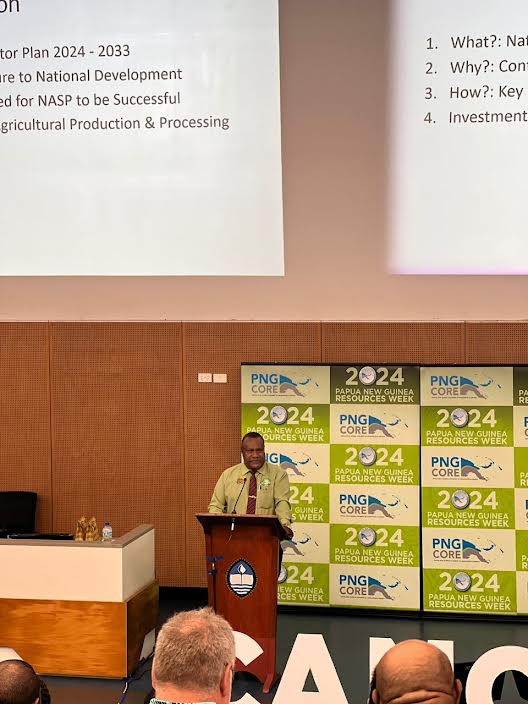
By Zebedee Kumpio
THE Department of Agriculture and Livestock (DAL) Secretary, Dr. Sergie Bang, has called on the extractive industry sectors to invest in the agriculture sector.
Dr. Bang made this appeal during the CANCONEX Papua New Guinea Resources Summit at the University of Papua New Guinea, Port Moresby.
Dr Bang who presented the 10-year National Agriculture Sector Plan (NASP) 2024-2033 during the summit, urged these sectors to partner with the government to transition subsistence agriculture to commercial agriculture. The plan was launched on June 12th this year.
According to the NASP, the government aims for the agriculture sector to contribute K30 billion to the national Gross Domestic Product (GDP) and create two million direct jobs, along with many more indirect jobs.
“We’ve currently got the contribution of agriculture to the economy of PNG at K6 billion, and in 10 years, the government wants to increase that to K30 billion, which is a fivefold increase,” Dr. Bang stated.
He said to achieve this target, contributions from the private sector and other external sources must greatly exceed public sector contributions.
“The extractive industry, the resources, and the energy sector, we are appealing to you to become partners and help us move from where we are now to four times our current position in the next 10 years,” he said.
“You are the people who have the money. I urge you to partner with the agriculture sector. If you love this country, if you value this country from which you extract those resources, please, for the long-term good of this country, invest in agriculture.”
Dr. Bang noted that funding from the government to implement the NASP is not adequate, and this is why the department needs partnerships from the resource sector.
He expressed confidence that agriculture can and will contribute significantly to the country over the next 20 to 50 years.
